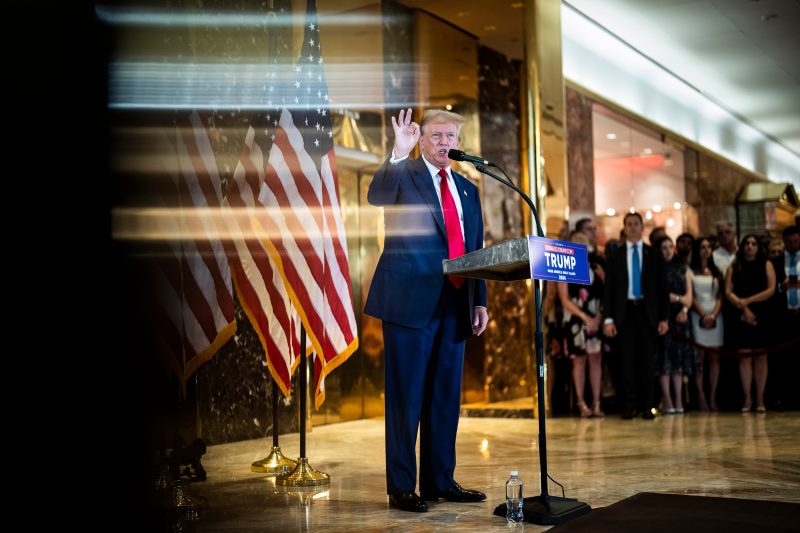In a recent development that has garnered significant attention, former President Donald Trump has once again claimed that the trial against him was rigged, echoing his sentiments about various other aspects during his time in office. The trial in question refers to the impeachment proceedings brought against Trump for incitement of insurrection following the Capitol riots on January 6th. Despite the Senate ultimately acquitting him, Trump remains steadfast in his belief that the process was unfair and biased against him.
Trump’s insistence on the trial being rigged falls in line with his broader narrative of victimhood and persecution. Throughout his presidency and even beyond, he has consistently portrayed himself as a victim of a system that seeks to undermine him at every turn. This narrative has not only endeared him to his loyal supporters but has also served as a rallying cry for his continued involvement in politics.
The claim of a rigged trial raises important questions about the state of democracy and justice in the United States. While it is natural for the accused to assert their innocence and challenge the fairness of legal proceedings, Trump’s repeated allegations of rigging call into question the very institutions that form the foundation of the country’s democratic system.
Furthermore, Trump’s accusations of a rigged trial also speak to the broader issue of accountability and responsibility among public officials. By dismissing the trial as biased and unfair, Trump signals a refusal to accept any culpability for the events that transpired on January 6th. This unwillingness to acknowledge wrongdoing not only undermines the principles of democracy but also sets a dangerous precedent for future leaders.
The repercussions of Trump’s claims of a rigged trial extend beyond the realm of politics and into the social fabric of the country. By sowing seeds of doubt and distrust in the judicial system, Trump fuels existing divisions and erodes public faith in institutions that are meant to uphold the rule of law. In an era marked by increasing polarization and disinformation, such rhetoric only serves to deepen societal rifts and hinder efforts towards unity and reconciliation.
As the country looks towards the future and grapples with the aftermath of the Capitol riots, the question of accountability looms large. Trump’s steadfast insistence on the trial being rigged raises concerns about the fragility of democracy and the need for a robust system of checks and balances to safeguard against abuses of power.
In conclusion, Trump’s claims of a rigged trial not only reflect his personal grievances but also have far-reaching implications for the state of democracy and justice in the United States. Rather than accepting responsibility and working towards healing a divided nation, Trump’s refusal to acknowledge the legitimacy of the trial further entrenches partisan divides and perpetuates a culture of distrust. Moving forward, it is imperative for society to confront these challenges and work towards rebuilding trust in institutions that are vital to the functioning of a healthy democracy.
